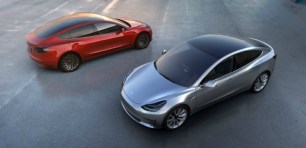
The sunswift 7.
Earlier this year UNSW’s Sunswift racing unveiled its latest solar-powered vehicle — the Sunswift 7 — aiming to break the Guinness World Record for fastest solar electric car over 1000km. And this week it did just that.
The car recently completed a speed run where it covered more than 1000km, averaging 84.17km/h, on a single charge. This is a fair bit lower than the 120km/h average that the team was hoping for back in June. But that didn’t stop them from hitting that record.
The drive was completed at the Australian Automotive Research Centre in Victoria and lasted 11 hours, 53 minutes and 32 seconds. Although its in-built solar panels allow for it to be charged by the sun in real time, its battery was charged externally for the purposes of this run.
A couple of issues cropped up during the drive, including a punctured tyre and battery problem. The latter resulted in a 14-minute pitstop that left the crew mere seconds away from having to cancel the attempt. Fortunately, they were still able to get back on track to break the record.
But it’s not official just yet. At the time of writing the Sunswift team was awaiting confirmation from Guinness World Records. The last time the team held this record was with the Sunswift 5 back in 2014, which broke it for a 500km run.
The Sunswift Violet also came second in the 2019 World Solar Challenge.
The car itself is the seventh generation Sunswift and the product of 25 years of innovation by UNSW students. This generation contains a 38KWh battery wrapped in a carbon-fibre monocoque chassis and a carbon-fibre body.
“This is the result of the hard work of 50 undergraduate students who are very dedicated, very focused and very talented,” Sunswift team principal, Professor of practice Richard Hopkins, said in June when the car was first revealed.
“Sunswift 7 is the manifestation of their collective minds, who on day one probably had very little idea what they were doing. And now to produce this amazing car is just insane.”
Hopkins reiterated how this innovation is coming from students, as opposed to automotive professionals who have been in the industry for years.
“Let’s remember, these are not the best paid professional car makers in Stuttgart working for Mercedes. This is a bunch of very smart amateurs who have taken all the ingredients and put it together in a brilliant way.”
This news comes just weeks after Hyundai and Kia announced a deal to manufacture EVs with 1000km range. We still have a long way to go when it comes to EV adoption, infrastructure and general democratisation in Australia. But it’s still a nice target.
Handpicked for you

Queensland just became the best state to buy an EV in Australia



COMMENTS
SmartCompany is committed to hosting lively discussions. Help us keep the conversation useful, interesting and welcoming. We aim to publish comments quickly in the interest of promoting robust conversation, but we’re a small team and we deploy filters to protect against legal risk. Occasionally your comment may be held up while it is being reviewed, but we’re working as fast as we can to keep the conversation rolling.
The SmartCompany comment section is members-only content. Please subscribe to leave a comment.
The SmartCompany comment section is members-only content. Please login to leave a comment.